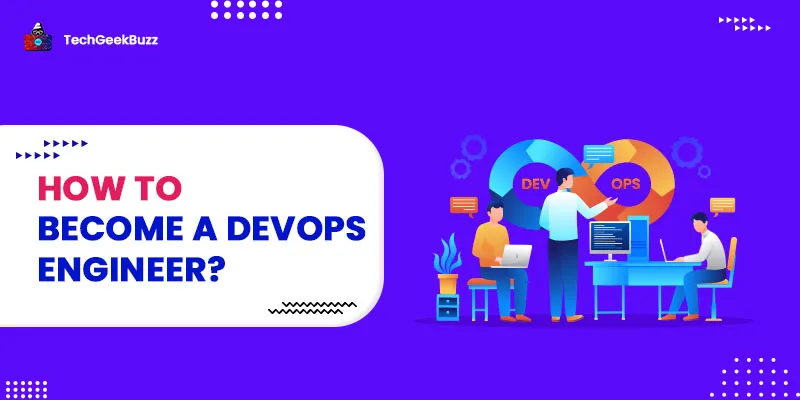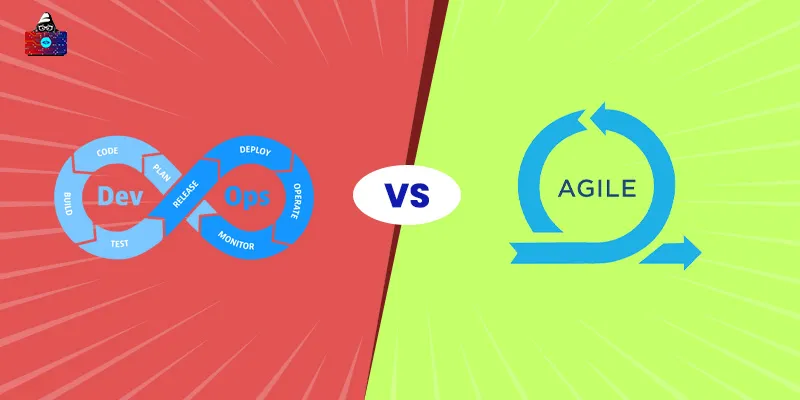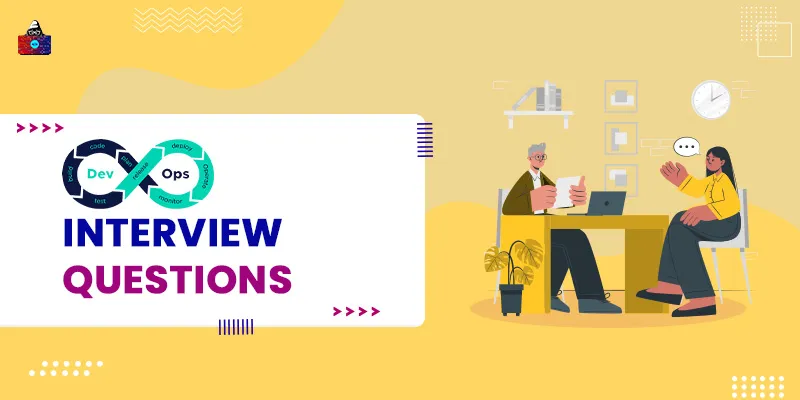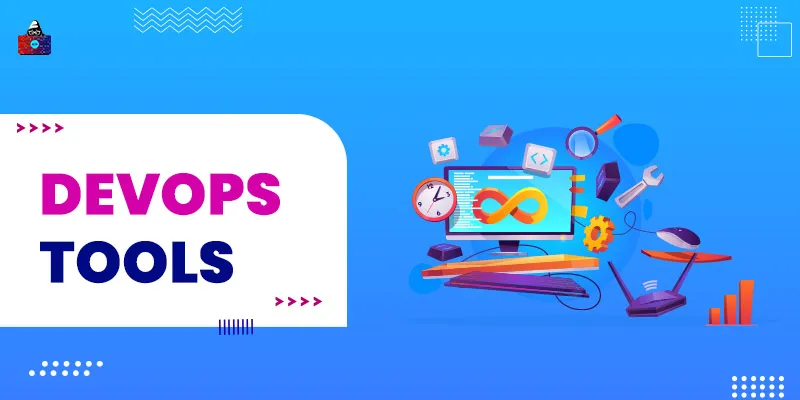- Figuring out the right DevOps Role
- Are you excited about collaboration?
- How do you lower the bill?
- The never-ending loop of CI/CD Integration.
- Tools that you will likely come across as a DevOps Engineer
- 1. Jenkins
- Features of Jenkins
- 2. Docker
- Features of Docker
- 3. Ansible
- Features of Ansible
- 4. Kubernetes
- Features of Kubernetes
- 5. AWS
- Features of AWS
- Landing your first role
In the past few years or so, DevOps has become one of the trending topics among the developer community. Starting from a mere vague methodology, it has now become one of the most important fundamental components of most businesses and organizations.
Well, there's a good reason behind this. Properly executed CI/CD pipelines have churned out huge profits for businesses. The amount of resources (both time and money) saved by a solid automation process allows engineers and developers to put more focus on the businesses' core operations.
Here are our tips that you should probably look into before you start browsing LinkedIn jobs to get yourself a career in DevOps. This guide will give you a direction to help you get started with becoming a DevOps Engineer.
Figuring out the right DevOps Role
Needless to say, there's a lot to think about and consider when you seek to decide on a career in DevOps. Probably, you should ask yourself this question before you start.
Are you excited about collaboration?
If working in a team scares you out, then you are probably not going to enjoy your career in DevOps. It's true that automation is the real value that most businesses want to add to their operations, but they want it to be done collaboratively, working with teams in all departments. After all, automation is all about carrying out operations simultaneously across the organization by pipelining them.
How do you lower the bill?
Most developers think that if they want a successful career in DevOps, they need to master themselves in AWS. It's great that they command solid command over this tool, but what businesses love more than this is - " A certified record of cutting down operational costs ".
It's true that AWS has made developers' lives much easier, but at the same time, keeping the AWS lights on proves to be a huge investment that companies strive to lower down. They will surely be happy to pay you over the average income if you help them do so. Cost-optimization is often overlooked, but this is gold dust.
The never-ending loop of CI/CD Integration.
There's a high chance that you might have come across CI/CD or Continuous Integration/Continuous Development before. It's probably why you got into DevOps in the first place. An automated CI/CD Integration is a dream for DevOps engineers. It's a necessity but not an add-on, be it for a junior maintaining a pipeline or a lead designing an infrastructure.
Tools that you will likely come across as a DevOps Engineer
Here's a curated list of all 5 top tools that you will most likely come across, which will help you to build that engine you have dreamed of. But before diving into them, make sure you are well aware of the CI/CD pipelines.
1. Jenkins
Jenkins is simply an automation server, and it is everything you will need to automate software development life cycle processes. You can assemble builds at any stage of the life cycle and can test them within the safe walls of containers.
Features of Jenkins
- You can create pipelines to distribute the workflows.
- It’s platform-independent since it’s written on Java.
- It has an easy UI that is quite beginner-friendly.
- It has tons of plugins and is highly customizable.
If you are building a career in DevOps, then getting some experience working with Jenkins is probably a good start for you.
2. Docker
Docker is an open-source platform that provides containerized environments that help you to build, deploy, debug, and share your applications. It has gained much popularity in recent years and has probably replaced virtual machines for development purposes. It's lightweight and easy to maintain.
Thus, it’s one of the life-saving tools for CI/CD developers. It sits on the OS and packages the applications into contained environments having their own filesystems, binaries, libraries, and all that you need to build a scalable application.
Features of Docker
- You can create multiple isolated containers within the same system, reducing maintenance.
- Docker’s official registry contains 1000s of useful images prebuilt.
- It allows you to scale your applications to 1000s of containers or a network of containers.
- You can easily debug and push the changes directly to the images.
One of the eggs in your basket should be Docker if you want to see yourself as a DevOps expert. It really lights up the portfolio.
3. Ansible
Ansible becomes very helpful when system admins try to tweak and tinker with the pipeline. They find that there are lots of changes that they need to perform at scale. It creates a centralized point that helps them manage the servers and machines.
Features of Ansible
- It’s agentless, meaning that it requires little effort for maintenance.
- It is written in human-readable YAML format.
- It is easy to learn, and you can start within a few hours of setup.
- You can automate everything, including management, development, and network.
When IT operation teams and Software teams collaborate with each other to churn new configurations across a network of complex servers, machines, and groups, Ansible makes the process hassle-free.
4. Kubernetes
Kubernetes is an easy-to-use management and orchestration tool. We have already discussed that Ansible helps you to orchestrate the servers and machines. But what about containers? Kubernetes helps us to keep a tab on load balancing, deployment, and overseeing scaling of the containers. If you already have Docker as a skill in your resume, Kubernetes is just a cherry on top.
Features of Kubernetes
- You can easily maintain a network of clusters through a single system.
- It allows you to identify which node goes where when scaling the system.
- Monitoring nodes and identifying point-of-failures becomes easier.
- Communication between containers and networks becomes easier.
Combining a container-orchestration tool with a container-management tool should be a dream of any DevOps Engineer.
5. AWS
AWS is the biggest cloud service provider, with a majority of the total market share. It’s a given that you know cloud infrastructure top-to-bottom, and given that AWS has the largest share, knowing AWS will definitely give you an edge over other candidates.
Features of AWS
- It provides a scalable cloud computing platform with the flexibility to choose our own models, languages, tools, etc.
- It is highly cost-effective and uses the pay-for-what-you-use model.
- It provides end-to-end privacy and security.
- You can choose your own servers to serve your customers better.
A DevOps engineer who knows AWS, Docker, Ansible, Kubernetes, and Jenkins and has good command over them, it's the dream for recruiters.
Landing your first role
The list is never-ending. However, the ones listed above are those giants that you must get your hands dirty on. If you want to get a role, then it's better to start networking with people having similar interests, attend local meet-ups, join communities, and take part in them actively. Showcase your skills in GitHub or bitbucket.
If you have the groundwork done and can present them to your peers, you are good to go. Start developing these skills, and sooner or later, you will have people waiting for you.
People are also reading:





Leave a Comment on this Post